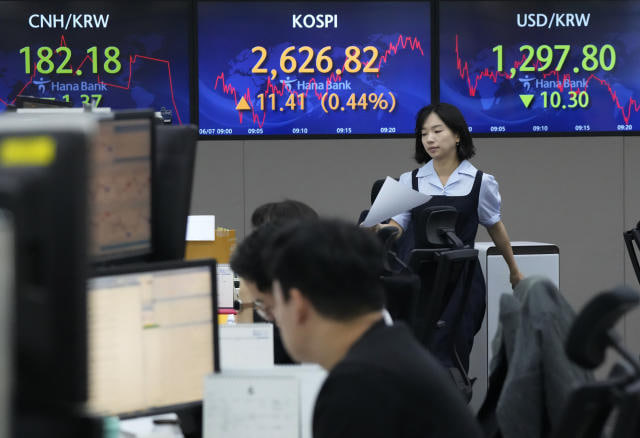COP29: A Climate of Disappointment or a Step Towards Climate Justice?
Meta Description: Deep dive into COP29 outcomes, analyzing the new climate finance goal, criticisms from developing nations, the history of climate funding, and the crucial need for climate justice and accountability. Explore the complexities of climate finance, including its nature (charity or compensation?) and mechanisms for ensuring effective implementation.
The air in Baku crackled with anticipation, then tension, then finally, a weary sigh of relief. COP29, the 29th Conference of the Parties to the United Nations Framework Convention on Climate Change (UNFCCC), concluded after a grueling overtime session, delivering a mixed bag of promises and disappointments wrapped up in the "Baku Climate Solidarity Pact." While the announcement of a new collective quantified goal (NCQG) for climate finance – a target of at least $300 billion annually by 2035 – seemed like a victory, the reality painted a far more nuanced picture. Developing nations, already struggling under the weight of climate change impacts, felt shortchanged, viewing the agreed-upon sum as a mere pittance compared to the trillions needed to truly address the climate crisis. This isn't simply about numbers, though; it's about a deep-rooted issue of climate justice, a concept that has echoed through decades of climate negotiations, yet remains frustratingly elusive. This article delves into the heart of the matter, exploring the historical context, the ongoing controversies, and the critical path forward for a truly equitable and effective global response to climate change. We’ll unpack the complexities of climate finance, examining its true nature, the mechanisms for accountability, and the crucial role of both public and private investment. Get ready for a no-holds-barred look at the triumphs and failures of COP29, and what it truly means for the future of our planet. Prepare to be informed, inspired, and perhaps, a little outraged. This isn't just about numbers; it's about our collective future. Let's unpack it, shall we?
The NCQG: A Drop in the Ocean?
The headline figure – $300 billion annually by 2035 – sounds impressive, right? Think again. Developing nations, facing the brunt of climate change impacts despite contributing far less to historical greenhouse gas emissions, see it as a slap in the face. Their demands were significantly higher, with some calling for annual funding closer to $1.3 trillion. This disparity highlights a central tension within climate negotiations: the yawning gap between the financial commitments of wealthy nations and the actual needs of vulnerable countries. The "Baku Climate Solidarity Pact," while offering some progress, falls far short of what many consider essential for a just and effective climate response. Frankly, the current target feels like a band-aid on a gaping wound.
Why the shortfall? Let's rewind the clock.
A History of Broken Promises
The concept of "climate justice" emerged in the late 1980s, highlighting the stark inequities inherent in climate change. Developed nations, having industrialized for centuries and fueled the planet's warming with unchecked emissions, now bear a significant responsibility to support developing nations in mitigating and adapting to the consequences. This responsibility manifested in various pledges, including the infamous 2009 Copenhagen Accord's promise of $100 billion annually by 2020. This goal, enshrined in the Cancun Agreements, was supposed to be channeled through the Green Climate Fund. But the reality, as documented by the OECD (Organization for Economic Co-operation and Development), paints a bleak picture. The promised $100 billion? Consistently missed. Years saw figures ranging from $52.4 billion to $83.3 billion, falling shockingly short of the target. And even those figures are inflated, as we'll discuss later. This pattern of broken promises has fueled deep distrust among developing nations, making it difficult to reach consensus on crucial climate actions.
The "Quality" Question: Loans, Not Grants
The issue isn't just about the quantity of climate finance; it's also about its quality. A significant portion of the funding provided by developed nations comes in the form of loans, not grants. This further burdens already debt-ridden developing countries, trapping them in a vicious cycle of needing to borrow more to address climate-related issues while simultaneously struggling to repay existing debts. This is akin to giving someone a fire extinguisher that requires a hefty mortgage to own. Makes you think, doesn't it? It's not exactly the helpful hand that was promised.
Furthermore, there's the issue of "creative accounting." Some developed countries, criticized for their lackluster contributions, have attempted to inflate their reported climate finance figures by including private sector investments and even unrelated infrastructure projects. The US, for example, has reportedly met only a small fraction of its pledged contribution, a trend mirrored by Australia and Canada. This lack of transparency and accountability severely undermines the trust necessary for effective international cooperation on climate action.
COP29: A Pyrrhic Victory?
COP29, while seemingly achieving a new financial target, failed to address these fundamental issues. The $300 billion target, while a step up, is still far from sufficient, leaving many developing nations feeling unheard and unseen. The anger expressed by representatives from India and Africa underscored the depth of this frustration, with some describing the outcome as a "powerless and insulting agreement."
Climate Finance: Charity or Compensation?
The question of whether climate finance is charity or compensation resonates deeply within the climate justice debate. It's neither purely charitable nor solely compensatory. It's a complex blend of both, rooted in the principle of "common but differentiated responsibilities and respective capabilities." This principle acknowledges that developed nations bear a greater historical responsibility for climate change due to their high levels of past emissions, and therefore have an obligation to support developing nations in their mitigation and adaptation efforts. This is not a handout; it's an acknowledgment of historical culpability. Think of it like this; if you accidentally damaged someone's property, you wouldn't just offer a donation, you'd offer compensation for the damages.
Ensuring Accountability: The Need for Transparency and Robust Mechanisms
Given the track record of unmet pledges, mechanisms to ensure accountability are paramount. The new climate finance framework must prioritize grants and concessional finance for low-income and climate-vulnerable countries, tailored to specific needs and investment priorities. A robust transparency framework is essential, ensuring that funding flows are publicly accessible and that countries are held accountable for their commitments. Without these measures, the $300 billion target risks becoming another broken promise, further eroding trust and hindering progress.
Climate Justice: Actions Speak Louder Than Words
The stark reality is that the current trajectory of global warming is alarming. The UN's 2024 Emissions Gap Report paints a grim picture: a projected temperature increase of 3.1°C by the end of the century, far exceeding the Paris Agreement's target of 1.5°C. This underscores the urgency of significantly scaling up climate finance and action. The words from the Chinese delegation at COP29, emphasizing the need for developed nations to fulfill their financial obligations, highlight the ongoing tension and the vital role of accountability. The private sector can play a significant role, but it should not be seen as a replacement for the crucial commitments of governments.
The path to a just and effective climate response demands a fundamental shift in approach. It's not merely about setting targets; it's about delivering on those targets, ensuring transparency, and implementing robust mechanisms to track progress and hold nations accountable. Climate justice is not a slogan; it is a fundamental imperative for the survival of our planet and the well-being of all its inhabitants.
Frequently Asked Questions (FAQs)
Q1: What is the NCQG, and why is it controversial?
A1: The NCQG (New Collective Quantified Goal) is a new target for climate finance, aiming for at least $300 billion annually from developed countries by 2035. It's controversial because developing nations view this amount as insufficient to address the scale of the climate crisis, demanding far higher funding levels.
Q2: What is the history of climate finance pledges?
A2: Developed nations have made several pledges over the years, most notably the $100 billion annual target by 2020, which was consistently unmet. This history of broken promises fuels distrust among developing nations.
Q3: Is climate finance charity or compensation?
A3: It's a complex mix of both, based on the principle of "common but differentiated responsibilities." Developed nations bear a greater historical responsibility and therefore an obligation to support developing nations.
Q4: How can accountability be ensured in climate finance?
A4: Robust transparency, clear mechanisms for tracking funding flows, and strong enforcement measures are crucial to ensuring accountability and preventing the manipulation of figures.
Q5: What is the role of the private sector in climate finance?
A5: Private sector investment plays a crucial role, but it cannot replace official development assistance from developed nations. It should be seen as supplementary, not a substitute.
Q6: What is the overall significance of COP29?
A6: COP29 provided a platform for negotiations and agreements on climate finance, but the outcome has been met with mixed reactions due to concerns about the sufficiency of the new financial goal and the ongoing need for greater accountability.
Conclusion
COP29 offered a glimpse of progress, yet fell short of the transformative change needed to address the climate crisis effectively and equitably. The new climate finance goal, while a step forward, is far from sufficient for the needs of developing nations. The issue isn't merely about money; it's about justice, accountability, and a fundamental shift in global cooperation. The path forward requires a renewed commitment from developed nations, a focus on transparency and accountability, and a recognition that climate justice is not a luxury but a necessity for a sustainable future. The world must move beyond words and towards tangible action, ensuring that the promises made today are not broken tomorrow. The future of our planet depends on it.



